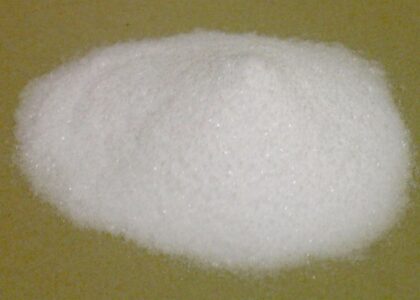Hemp-based packaging refers to packaging materials that are derived from the fibers of the hemp plant (Cannabis sativa). Hemp has gained attention as a sustainable and eco-friendly alternative for various products, including packaging.
Amidst the global drive for sustainable and eco-friendly alternatives, the Hemp-based Packaging Market has emerged as a pioneering force, harnessing the versatility of hemp fibers to create environmentally conscious packaging solutions.
Hemp-based packaging is gaining momentum as a sustainable alternative to traditional packaging materials. The Hemp-based Packaging Market size is projected to grow from US$ 224 million in 2023 to US$ 782 million by 2033. The sales are expected to increase at a significant CAGR of 13.3% during the forecast period.
One of the primary benefits of hemp-based packaging is that it is biodegradable and compostable. Unlike conventional packaging materials like plastic, which can take hundreds of years to degrade. Hemp-based packaging can decompose in as little as six months.
The growing availability and accessibility of hemp as a raw material play a pivotal role in propelling the expansion of the hemp-based packaging market.
Get Exclusive Sample Copy of the Report: https://www.futuremarketinsights.com/reports/sample/rep-gb-17129
Key aspects of hemp-based packaging:
- Sustainability: Hemp is a fast-growing and highly renewable resource that requires minimal pesticides and water compared to traditional crops. Its rapid growth cycle makes it an environmentally sustainable option for packaging materials.
- Biodegradability: Hemp-based packaging is often biodegradable, meaning it can break down naturally over time, reducing environmental impact compared to non-biodegradable materials like certain plastics.
- Strength and Durability: Hemp fibers are known for their strength and durability. When used in packaging, hemp-based materials can provide robust and resilient packaging solutions.
- Versatility: Hemp fibers can be used to create a variety of packaging materials, including papers, boards, and composites. These materials can be molded or formed into different shapes to meet specific packaging needs.
Growth Factors
As the demand for sustainable packaging solutions continues to surge, driven by increasing environmental awareness, the industry is poised for significant growth. A growing number of individuals are recognizing the environmental impact associated with traditional packaging materials, leading to a substantial shift towards eco-friendly and biodegradable packaging options.
The ongoing legalization of cannabis and hemp farming in various nations is expected to be a major catalyst for the advancement of the hemp-based packaging market. Hemp cultivation, known for its minimal need for pesticides or herbicides, emerges as a more environmentally friendly and sustainable alternative to other plant-based materials commonly used in packaging. This trend reflects a broader commitment to ecological considerations in the packaging industry, emphasizing the pivotal role of sustainable practices in meeting evolving consumer preferences.
Ready to Learn About Our Approach? Explore Our Methodology: https://www.futuremarketinsights.com/request-report-methodology/rep-gb-17129
Competitive Landscape
The global hemp-based packaging is extremely consolidated, with a few top manufacturers controlling a sizable portion of the market. Hemp Inc., Sana Packaging, Hemp Plastic Company, International Paper Company, Elevate Packaging, Inc., and others.
Key Segments Covered in the Market Report
By Product Type:
- Bags
- Boxes
- Pouches
- Wraps
- Others
By End-user Industry:
- Food and Beverage
- Healthcare
- Cosmetics
- Personal Care
- Others
Distribution Channel:
- Online Sales
- Supermarkets and Hypermarkets
- Convenience Stores
- Others
By Region:
- North America
- Latin America
- Western Europe
- Eastern Europe
- Asia Pacific Excluding Japan (APEJ)
- Japan
- The Middle East & Africa (MEA)




